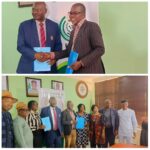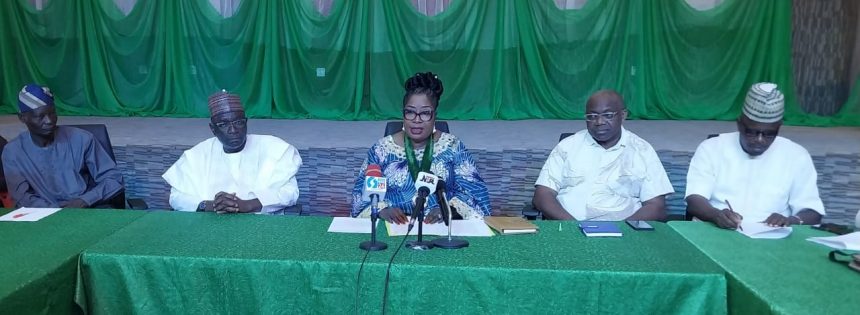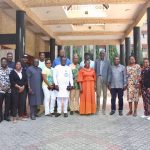The Nigerian Society of Engineers (NSE), on Friday, said renewable energy is crucial to climate-resilient food production and address Nigeria’s 40 per cent post-harvest agricultural loses.
The NSE stated this in a communiqué issued at the end the 57th International Engineering Conference, Exhibition and Annual General Meeting of NSE held in Abuja
The resolution was issued by Mrs Margaret Oguntala, President NSE and Mr Joshua Egube, the Executive Secretary of NSE.
The News Agency of Nigeria (NAN), reports that the theme of the five-day conference tagged Abuja 2024 was “Sustainable Engineering Solutions to Food Security and Climate Change.”
Oguntala who doubles as Chairman-in-Council tasked engineers, policy makers and other stakeholders to synergise in tackling post-harvest loses, presenting a significant challenge to food security and economic stability.
According to her, the losses are caused by poor storage facilities, inefficient transportation systems and inadequate processing infrastructure, translating to wasted produce annually.
“With substantial post-harvest loses representing about 40 per cent of food produced in Nigeria challenging food security; the conference underscored the importance of improved storage facilities, cold chains and transportation networks.
“Such infrastructure reduces food spoilage, ensures better market access and strengthens the resilience of food supply chains.
“Renewable energy was identified by the conference as a critical enabler for climate-resilient food production systems, especially in rural and off-grid areas revolutionising agriculture in rural farming communities.
“Policy frameworks that support climate-smart agriculture, encourage innovation in sustainable engineering and facilitate climate finance were essential to address the agricultural challenges,” she sated.
Oguntala explained that as climate change disproportionately affects Nigeria, addressing food security required urgent, integrated and innovative engineering solutions.
She, therefore, said that advances in sustainable engineering, such as precision agriculture, smart irrigation, renewable energy integration and climate-resilient infrastructure are essential in adapting to climate-related challenges.
She added that such solutions would not only enhance agricultural productivity but also reduce the carbon footprint of food production and distribution systems.
Oguntala said that the conference also observed that water scarcity and inadequate irrigation systems were significant constraints to sustainable agriculture in Nigeria.
She explained that out of over 84 million hectares of arable land; only about 1.6 million hectares are irrigated, leaving the rest reliant on unpredictable rainfall.
She said the conference noted the need for advanced water management solutions, including water-efficient irrigation, rainwater harvesting and wastewater reuse.
Oguntala said that NSE therefore, recommended that empowering local farmers and rural communities with knowledge, skills and access to sustainable technologies was crucial for enhancing food security.
“Nigerian Engineers are challenged to deploy their expertise in collaboration with relevant organisations.
“They should use data, artificial intelligence among other enabled systems to support precision agriculture for better monitoring of weather patterns, soil health and water availability for optimal farming practices.
“Government and relevant stakeholders like research institutes, food processors, aggregators, exporters among others should embrace and promote innovations and technologies that enhance agricultural productivities and reduce greenhouse gas emission.”
Oguntala said there was need for Federal Ministry of agriculture and other relevant stakeholders to support efforts of agricultural research and development institutions.
This, she said was in developing sustainable irrigation systems, including rainwater harvesting and efficient irrigation technology, to ensure water availability for farming all year round to increase land under cultivation and increase crop yields in Nigeria.
She urged the government and relevant funding organisations to support various research outputs and commercialisation of sustainable storage facilities and processing technologies being developed or adapted in Nigeria to minimise post-harvest loses.
The President said that NSE called on regulatory bodies to synergise with oil and gas companies to reduce water pollution, gas flaring and promote soil remediation to boost farming in the local communities and support livelihood.
She said that NSE also called on the oil and gas companies to work with local agricultural stakeholders to deploy technologies to mitigate effects of oil spills on food production systems.
She said that NSE urged government at all levels and donor agencies to fund construction, rehabilitate and maintain rural roads to ease challenges of food transportation in Nigeria.(NAN)











